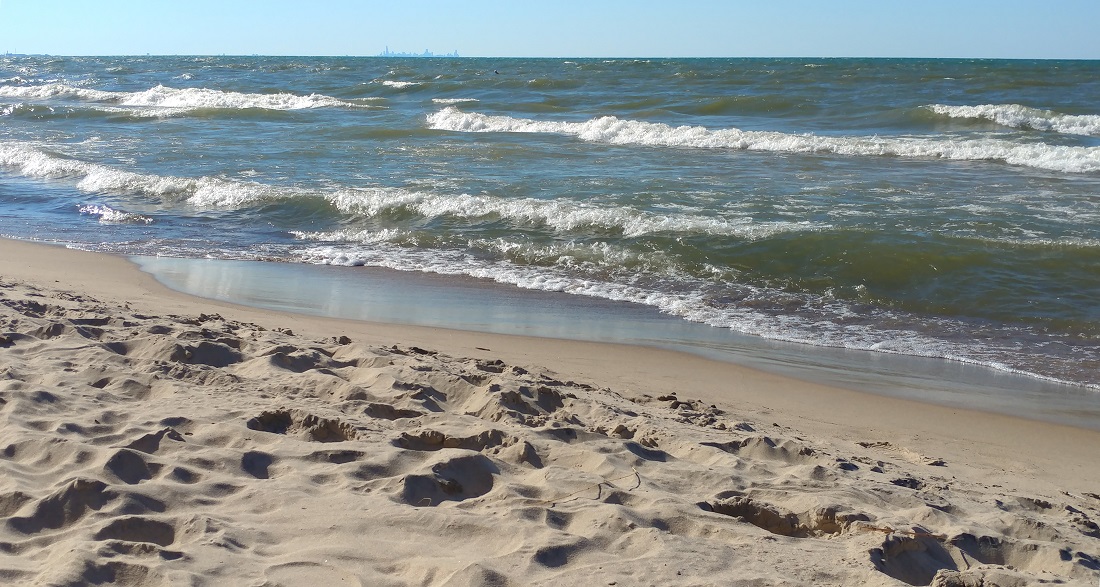The Center for Great Lakes Literacy
The Center for Great Lakes Literacy (CGLL, pronounced like seagull!) develops and shares educational resources geared toward K-12. Most resources on this website are produced in the form of lesson plans for teachers.
Teach Me About the Great Lakes: Limnologist Make Up Lots of Words
Explore the Great Lakes origin story on this IISG podcast episode. Micheal Twiss, professor emeritus at Clarkson University in Canada, discusses limnology, which is the study of freshwater bodies including lakes.
The Great Lakes Piping Plovers Story Map
This educational outreach tool was developed to foster enthusiasm and support for piping plover recovery efforts. The StoryMap features interactive maps, photos, and videos.
Great Lakes Now
This collection of free lesson plans and corresponding videos from the award-winning PBS television program engages students with science, math, and the Great Lakes.
H.O.M.E.S. at Home Webinar Series
Michigan Sea Grant and the Great Lakes Sea Grant Network bring you lots of ways to enjoy and learn about our freshwater seas right from your own home. This series of family-friendly videos are jam-packed with Great Lakes fun facts, activity suggestions, and daily challenges. Each video provides a high-energy experience that engages people of all ages in learning about the Great Lakes.
H.O.M.E. School
This lesson series about the Great Lakes for kids in grades K-8 was developed by Alliance for the Great Lakes. Eight online sessions include educational lessons on the Great Lakes and ideas for interactive activities at the end of the video.
Lake Michigan Shipwrecks and Aquatic Invasive Species
This resource from Wisconsin Sea Grant has activities, stories, and learning objectives about shipwrecks and aquatic invasive species in Lake Michigan. Students can use this collection to discover more about invasive species, how they interact in Lake Michigan, and specific species in Lake Michigan and the Great Lakes. Students will also be able to explore shipwrecks in Lake Michigan and see their ecological impacts in Lake Michigan.
NOAA-Great Lakes Environmental Research Laboratory
Explore a collection of communications products that translate research into factsheets, infographics, and other educational resources.
Water on the Web
The Wisconsin Water Library offers Water on the Web to kick-start your exploration of water-related topics. It is especially useful if you need research ideas or a reliable source of water information.
What’s So Great about the Great Lakes?
This TED-Ed video quickly sums up the history and greatness of this 23-quadrillion-liter freshwater resource from the last Ice Age to the 3,500 species that it supports today.
Citizen Science
You can help with science! These crowdsourcing opportunities allow community members to contribute to research and outreach. This can include
finding scientific research in your city,
following guides for experiments online, recording the amount and types of
litter on your local beach, and more.
The Great Lakes BioBlitz
Each spring from Earth Day to mid-May, Wisconsin Sea Grant hosts a basin-wide event to find and identify as many wild, living things as possible in the Canadian provinces and U.S. states that border the Great Lakes.
At Home on the Great Lakes
Shedd Aquarium in Chicago, Illinois, has an exhibit highlighting the beauty, creatures, and habitats of the Great Lakes. You can learn more by exploring Great Lakes fish, mammals, and reptiles, or about how to help protect these waters.

